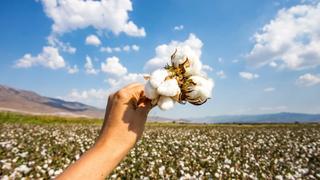After reading reports of the struggles small farmers engaged in dairy farming encounter to keep ventures going, Shree Rengan and Saanjeev, final-year students of the Sri Ramakrishna Institute of Technology, Coimbatore, conducted an extensive study of milch animals before developing a tool – a belt-like device with sensors, that lowers the cost of animal maintenance.
The two students, along with their mentor, Roger Rozario AP, shared the details of the tool with reporters.
“This belt acts like a watch-dog for indigenous cattle breeds to increase milk yield in Indian farms,” said Shree Rengan.
The Tool
He displayed a flat, belt-like device with four sensors (to do things such as monitoring the pulse and temperature of the cow), an IoT controller and a battery for sending data to the Cloud in real time.
This belt is tied around the neck of the animal. The sensors, embedded in the belt, are strategically placed to capture every movement of the animal.
“A majority of small dairy farms are maintained by women. They either have no wherewithal to get a veterinary doctor on time or they tend to take it easy, until the situation goes out of control. These sensors act like a watchdog,” said Rozario.
The students tested the device at a farm in Thondamuthur and another at Thudiyalur, on the outskirts of Coimbatore.
“It was initially difficult to make the farmer understand how the device would work and the benefits they would derive by using it,” says Shree Rengan.
After using it for a month or so, farmer Muruganantham at Thondamuthur conceded that there was a drastic reduction in the maintenance cost of the cow. “Earlier, we would depend on the Vet for advice, have to pay him ₹500 for every visit. It is now a lot easier. We can detect the ailment then and there.”
The market potential for this device is huge, Rozario said, and pointed out that if one animal got ill, the farmer loses revenue for 10 -12 days, until it returns to normalcy. “This does not include treatment cost,” he added.
The students have tried the belt on both Desi cows and foreign breeds.
Citing their findings, they claim that milk from the desi cows is good for health, while consumption of milk from non-indigenous breeds leads to lactose intolerance, sudden infant death syndrome, diabetes, autism and neurological disorders.
“Farmers prefer Jersey breeds for their yield, but the resistance level (to disease) is high among desi breeds. We want to help in improving the milk yield in desi breeds. We have the technology, but are short of funds. We will need about ₹15 to 20 lakh to set up the infrastructure and industrial grade sensors,” said Saanjeev.
This project is among the 16 entries short-listed by the Accenture Innovation Challenge 2018. The grand finale is slated to be held in Bengaluru on October 24.







Comments
Comments have to be in English, and in full sentences. They cannot be abusive or personal. Please abide by our community guidelines for posting your comments.
We have migrated to a new commenting platform. If you are already a registered user of TheHindu Businessline and logged in, you may continue to engage with our articles. If you do not have an account please register and login to post comments. Users can access their older comments by logging into their accounts on Vuukle.